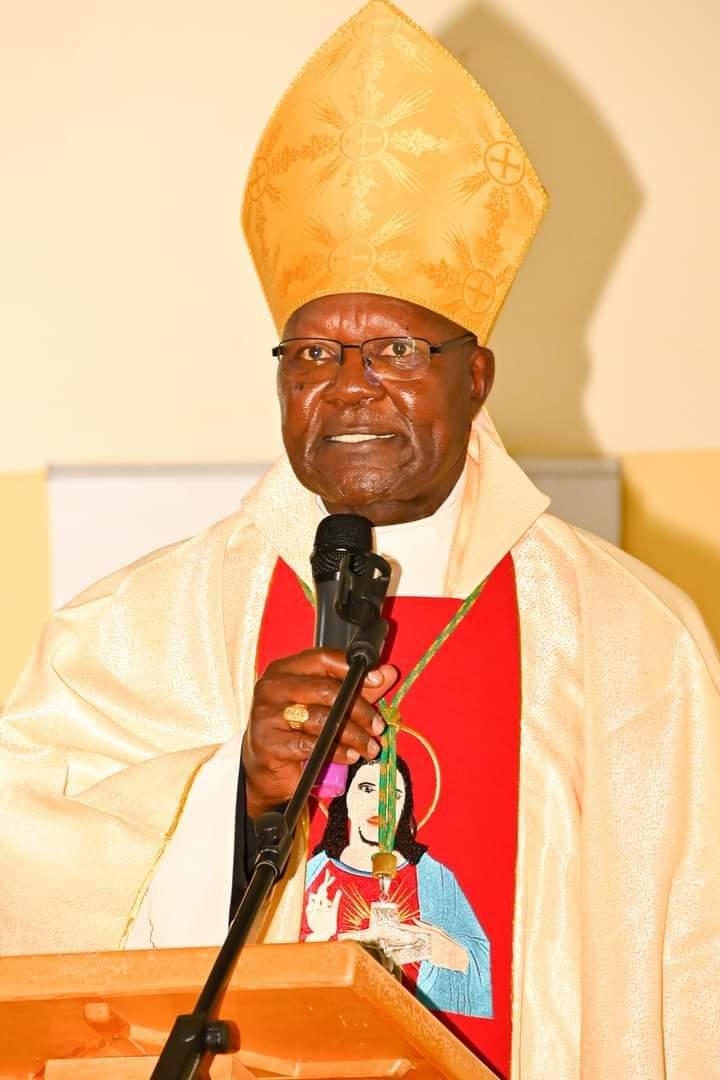KENYA; On Peace Initiative for North Rift Region, a Multifaceted Approach Stressed as Key

Bishop John Oballa Owaa
Sr. Jecinter Antoinette Okoth, FSSA
At the launch of a peace initiative project by members of the Kenya Conference of Catholic Bishops (KCCB) in the North Rift region of the country, an integrated approach that brings together various actors for effective involvement of institutions and individuals has been emphasized as a key component to curb recurrent conflicts in the region.
In their message prior to the launch that was on Wednesday, June 28, prelates highlighted that the peace initiative “brings together the six Catholic dioceses to address the root causes of conflict in the North Rift Region (which include) the Dioceses of Eldoret, Nakuru, Nyahururu, Kitale, Maralal, and Lodwar.”
Speaking during the launch dubbed as North Rift Peace Initiative, the Chairman of KCCB’s Catholic Justice and Peace Commission (CJPC) Bishop John Oballa Owaa, addressed the causes of conflict in the North Rift stressing that “the Region requires a multifaceted approach, bringing all stakeholders together, both state and non-state actors.”
According to the bishop of the Catholic Diocese of Ngong, this approach includes investing in conflict resolution mechanisms, promoting dialogue between communities, disarmament initiatives, addressing historical grievances and fostering inclusive governance.
“Efforts to promote peaceful coexistence should involve engagement with community leaders, cultural institutions and local stakeholders to challenge harmful cultural practices while respecting and valuing diverse traditions and identities,” he said on Wednesday at St. John’s pastoral Centre in Eldoret Diocese where the launch was taking place.
Highlighting some peace-building approaches that could be adopted to grow peace among the people of North Rift, the Bishop pointed out the need for dialogue and mediation which should be inclusive and involves representatives from all conflicting ethnic communities.
“Facilitating dialogue and mediation processes is crucial for bringing conflicting parties together to understand each other’s perspectives, address grievances, and find common ground,” the Bishop said and expounded that by involving community leaders, religious leaders and respected individuals as mediators with the goodwill of both national and county governments, this can “help foster trust and create a conducive environment for dialogue.”
He also talked of strengthening community institutions by supporting local peace committees, community-based organizations and traditional dispute resolution mechanisms “to help manage conflicts at the grassroots level and develop sustainable mechanisms for peace.”
Additionally, Bishop Oballa narrated, conflict resolution and reconciliation programs are other approaches to peace-building that need to be implemented to “promote nonviolent communication, negotiation, and peaceful dispute resolution.”
Other approaches he talked about include Socio-economic development and livelihood support, security sector reform and disarmament, establishing truth and reconciliation commissions as well as education and awareness creation.
The North Rift region in Kenya has been experiencing violent conflicts including cattle rustling among pastoralist groups. This situation moved the Catholic Bishops in Kenya to sign a memorandum on conflict management and peace building between KCCB and member Dioceses of North Rift peace initiative in the year 2021.
Basing his reflections on the Gospel of St. Mathew the Apostle (Math. 5: 9): “Blessed are the peacemakers, for they will be called children of God,” the Prelate noted that peace is a gift from God which goes beyond the mere absence of conflict.

“It is a state of being an inner serenity that transcends our circumstances and permeates every aspect of our lives. This peace is not something we can manufacture or achieve through our own efforts alone; it is a precious gift from our loving Creator that surpasses our understanding,” he explained and continued, “Brothers and sisters, peace begins with each one of us. It starts in our hearts, radiates to our families, and extends to our communities. Let us be vigilant in examining our own lives, seeking areas where we can promote peace and address the conflicts within ourselves and with others.”


